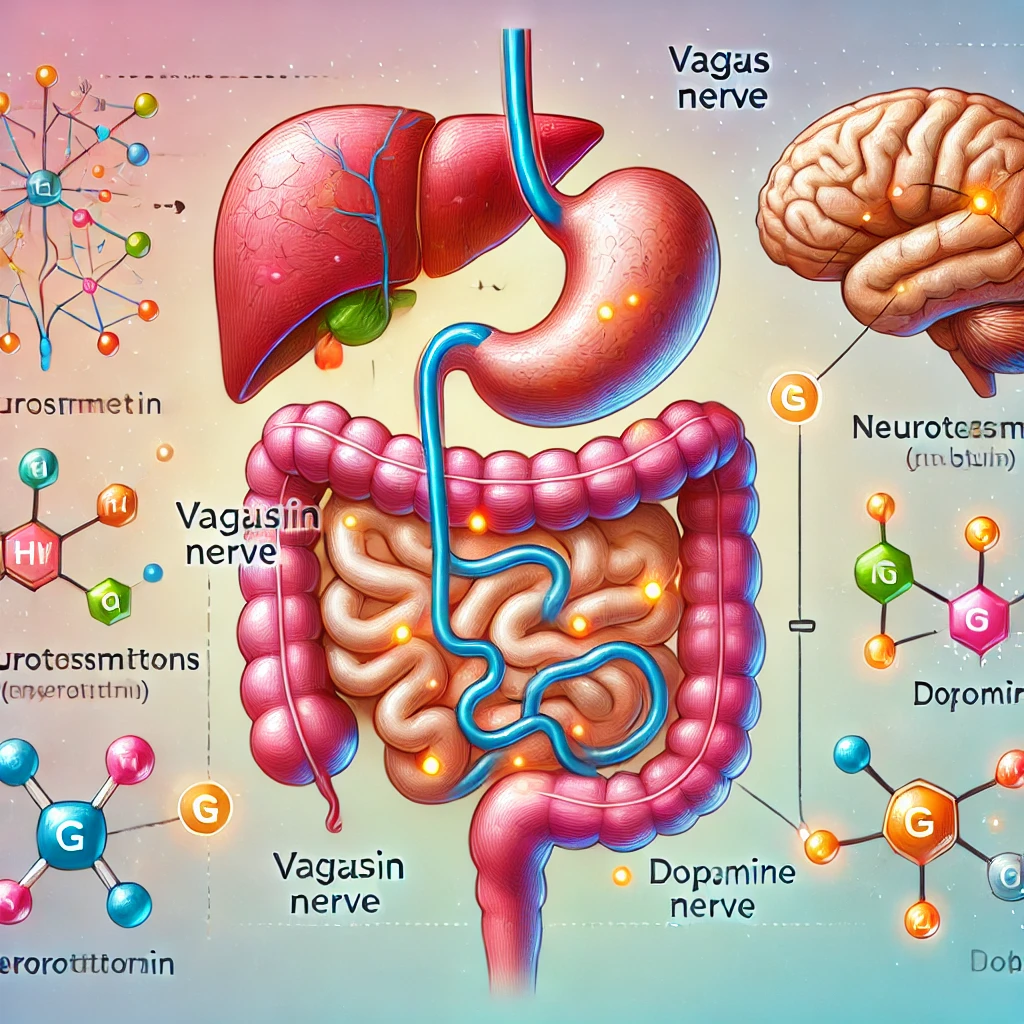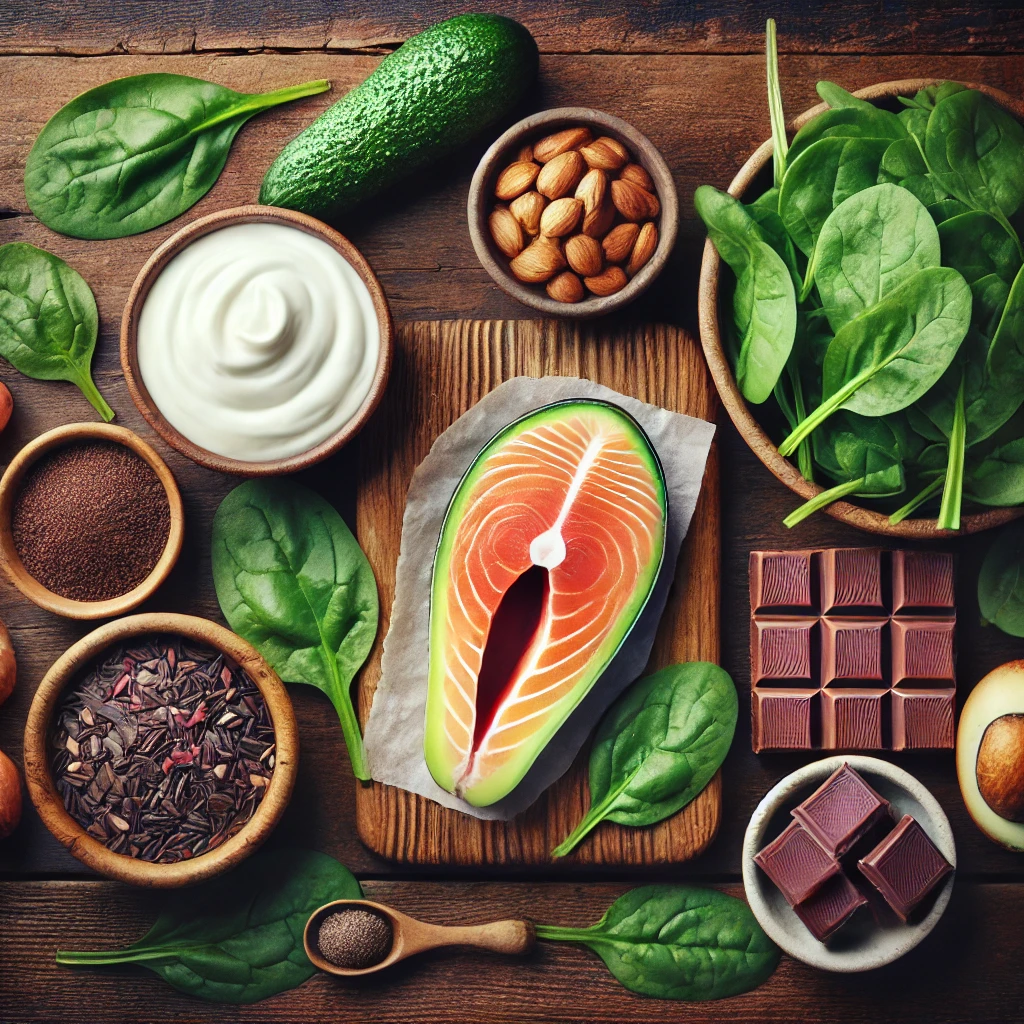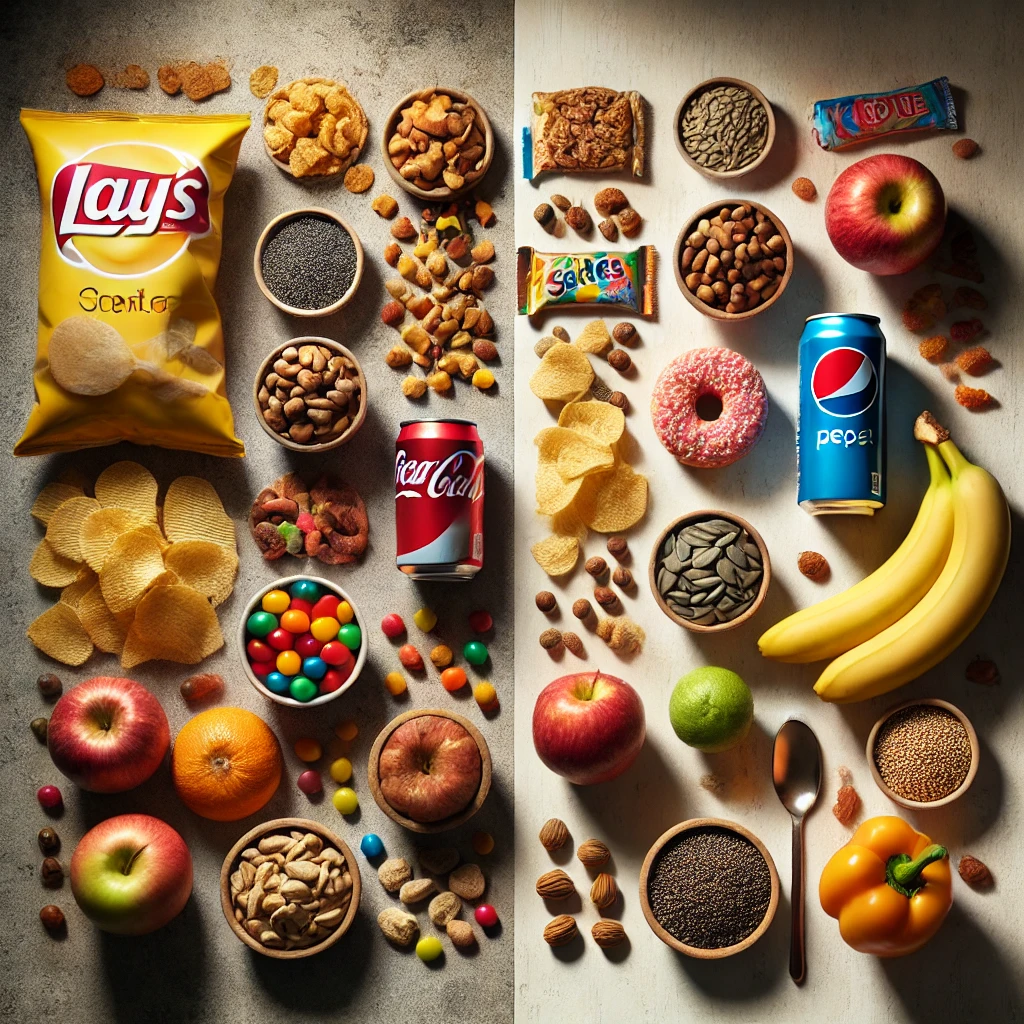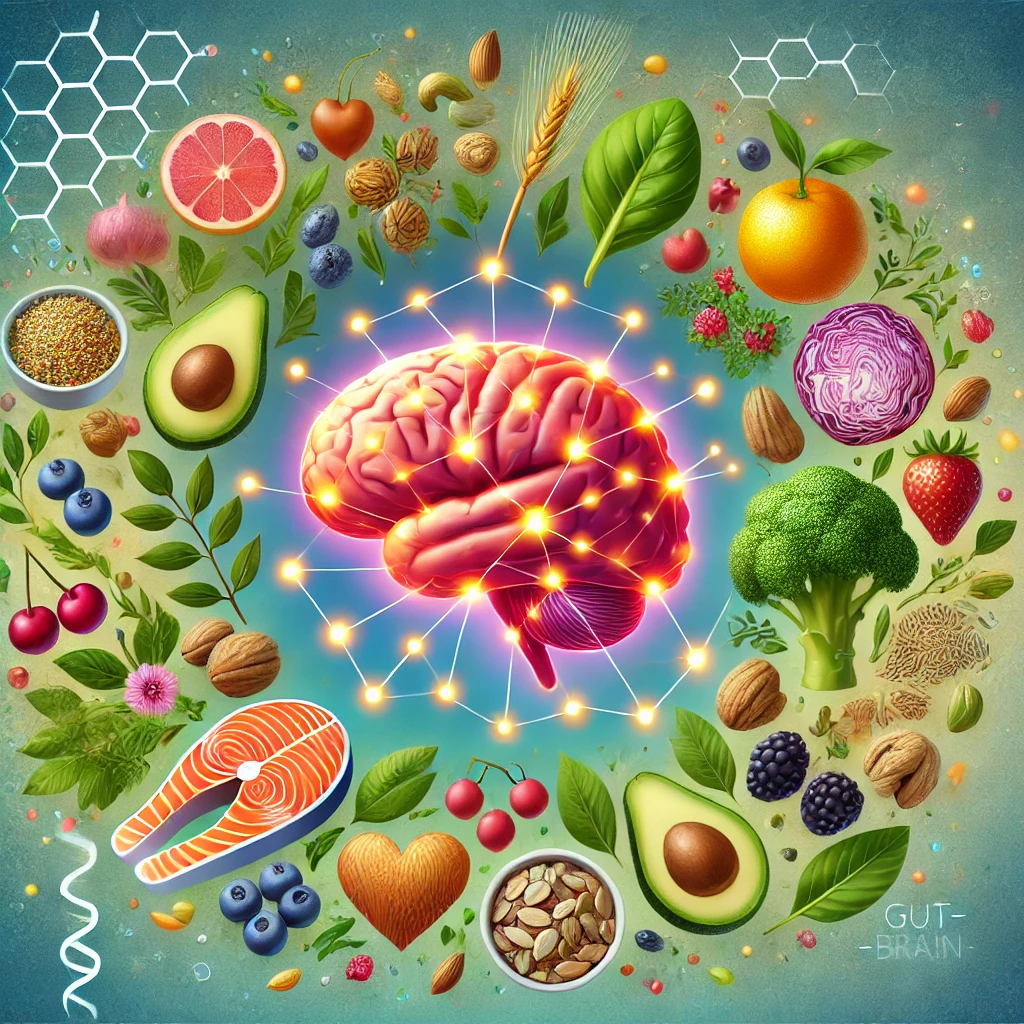Introduction: A Window into the Power of Food
Imagine this: A young professional, overwhelmed by work stress and struggling with depression, starts incorporating more nutrient-dense foods into their diet. Within weeks, they notice improved energy levels, sharper focus, and better emotional resilience. This story isn’t just anecdotal, it’s backed by science. According to a 2017 study published in BMC Medicine, individuals with moderate to severe depression who adopted a Mediterranean-style diet saw significant improvements in their symptoms. This powerful connection between nutrition and mental health reveals the incredible potential of food as medicine.
The Gut-Brain Connection: The Hidden Dialogue Within
The gut and brain are in constant communication through what’s known as the gut-brain axis. The gut houses trillions of microorganisms that produce neurotransmitters like serotonin, a chemical heavily involved in mood regulation. In fact, around 90% of the body’s serotonin is produced in the gut. When gut health is compromised, through an imbalance of gut bacteria or poor dietary choices, this communication can break down, leading to increased risks of anxiety, depression, and even cognitive decline.

Nutrients That Fuel Mental Health
Certain nutrients play a critical role in supporting brain function and emotional balance:
- Omega-3 Fatty Acids: Found in fatty fish like salmon, walnuts, and flaxseeds, omega-3s are essential for brain health. They reduce inflammation and support the structure of brain cells, which can help mitigate depression and anxiety.
- B Vitamins: Particularly B6, B9 (folate), and B12, these vitamins are crucial for producing brain chemicals that regulate mood, such as serotonin and dopamine. Leafy greens, legumes, eggs, and fortified cereals are excellent sources.
- Probiotics: Foods like yogurt, kimchi, and kombucha promote healthy gut bacteria, strengthening the gut-brain axis and reducing stress.
- Magnesium: Often referred to as the “relaxation mineral,” magnesium helps regulate the body’s stress response. Incorporate nuts, seeds, and dark chocolate into your diet.

The Downside of Processed Foods
Highly processed foods, laden with sugar, unhealthy fats, and artificial additives, can wreak havoc on mental health. Studies suggest that diets high in processed foods are linked to increased risks of depression and anxiety. These foods contribute to chronic inflammation, disrupt gut health, and lead to unstable blood sugar levels, all of which negatively impact mood and cognitive function.
Instead of reaching for processed snacks, opt for whole, unprocessed alternatives. For example, swap sugary granola bars with nuts and fresh fruit, and replace sodas with herbal teas or infused water.

Tips for a Mentally Nourishing Diet
- Focus on Whole Foods: Prioritize fruits, vegetables, whole grains, lean proteins, and healthy fats.
- Eat the Rainbow: Incorporate colorful produce for a wide range of nutrients.
- Hydrate: Dehydration can impair mood and cognitive function. Drink plenty of water throughout the day.
- Limit Alcohol and Caffeine: Both can disrupt sleep and contribute to anxiety.
- Plan Balanced Meals: Combine protein, fiber, and healthy fats for sustained energy and stable blood sugar.
Simple Recipe: Mood-Boosting Buddha Bowl
- Ingredients: Quinoa, roasted sweet potatoes, spinach, avocado, grilled salmon, and a tahini dressing.
- Instructions: Layer ingredients in a bowl, drizzle with tahini dressing, and enjoy a meal packed with omega-3s, fiber, and essential vitamins.
Expert Opinions and Research Backing
Dr. Felice Jacka, a leading researcher in nutritional psychiatry, emphasizes, “The evidence is compelling that a healthy diet is protective and an unhealthy diet is a risk factor for depression and anxiety.” Numerous studies support this, including one in The American Journal of Clinical Nutrition, which found that diets rich in whole foods were associated with a 30% reduction in the risk of depression.
Conclusion: A Call to Action
The link between nutrition and mental health is too significant to ignore. By reevaluating your eating habits and embracing a diet rich in whole, nutrient-dense foods, you can take proactive steps toward better mental well-being. Start small, swap one processed meal a day for a nourishing alternative and notice the difference it makes. Remember, food isn’t just fuel; it’s a powerful tool for healing and thriving.
Take charge of your mental health, one meal at a time.







Leave a Reply